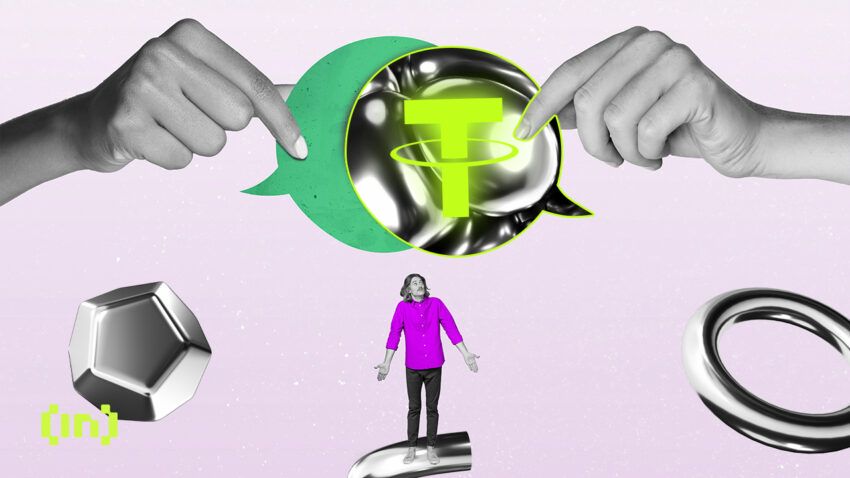Tether, the issuer of the stablecoin USDT, joins with a Georgian University to educate young minds about blockchain and cryptocurrency. The announcement contains fine-sounding language about spreading financial knowledge and training students in the use of technologies that promote freedom. But will people buy it?
Tether (USDT) has partnered with Business & Technology University (BTU) to promote blockchain and cryptocurrency education in the nation of Georgia. The issuer revealed its memorandum of understanding (MoU) with BTU in an announcement on its website on Wednesday.
Together, the issuer and the Georgian university will strive to expand education about digital trading and investing. A new program at the Tbilisi-based school will run for a month, and its aim is to “equip students with the necessary knowledge and skills to thrive in the emerging digital economy,” as per the announcement.
Tether to Help Educate
Crypto assets are high up on the list of subjects that the new program will cover. Tether will assist in developing educational courses covering stablecoins, bitcoin, and cryptocurrencies. The syllabus will also include education on other technologies that promote “financial freedom and freedom of speech.” However, the announcement does not state exactly what this might mean.
The program will run in partnership with the Academy of Digital Industry and Terminal, featuring lectures by local and international blockchain experts. Most of the classes will be given in Georgian.
To be sure, no one questions the value of education and greater financial sophistication. The region could probably do with more blockchain education, as Georgia is middling when it comes to grassroots cryptocurrency adoption.
Compared to other nations, Georgia has a ways to go in embracing cryptocurrency. Georgia sits in 37th place, according to Chainalysis’s Global Cryptocurrency Adoption Index. It is beaten by its neighbors Turkey and Russia, which are 12th and 9th, respectively.
Tether Teaching Freedom?
Freedom is a particularly topical subject in Georgia, which is currently experiencing a regression of democratic norms and liberties. This year, Freedom House designated the country a “hybrid or transitional regime,” giving it a Democracy Score of only 3.04/7. The nation has become less democratic since last year, according to the organization.
According to the organization’s 2023 report, Georgia’s Independent Media rating declined from 3.50 to 3.25 due to:
“A multiyear trend of worsening harassment and violence against journalists… as well as an increasingly polarized and politicized media environment that has undermined editorial independence.”
Last year, the director of a TV station critical of the Georgian government, Nika Gvaramia, was jailed for three years and six months. Gvaramia denies all charges as politically motivated.
Is Tether Safe?
The emphasis on education may sound progressive and noble. But Tether has been on the receiving end of criticism over its lack of transparency. In other words, for allegedly failing to be forthcoming enough about its finances.
A former SEC official criticizes the company for not conducting a proper audit. A number of crypto firms have collapsed in the past year. And John Reed Stark, former chief of the SEC’s Office of Internet Enforcement, has voiced concerns that Tether could be the next “domino to fall.”
Despite promising an audit for almost six years, Tether has failed to follow through on this commitment. Stuart Hoegner, Tether’s General Counsel, assured a full audit would occur within “months, not years” back in July 2021, but the company has yet to fulfill this promise.
The stablecoin issuer made cautious moves amid the banking crisis earlier this year. In the first quarter, Tether reduced its reliance on banks by withdrawing over $4.8 billion in deposits. According to a May 15 statement, it now has $481 million in bank deposits, down from $5.3 billion at the start of the year.
BeInCrypto has reached out to Tether for comment on issues raised in this story. A response was not forthcoming as of press time.
Disclaimer
In adherence to the Trust Project guidelines, BeInCrypto is committed to unbiased, transparent reporting. This news article aims to provide accurate, timely information. However, readers are advised to verify facts independently and consult with a professional before making any decisions based on this content. Please note that our Terms and Conditions, Privacy Policy, and Disclaimers have been updated.



